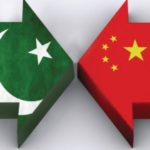After near-radio silence, Pak-China FTA is making media rounds again. Chinese Deputy Head of Mission Lijian Zhao while visiting Pakistan expressed China’s interest in expanding and promoting the current FTA.

Recall that there was a phase when the China FTA was in the news nearly daily, with all stakeholders indicating that China was in a listening mood, courtesy CPEC. The hope was to convince China to give unilateral concessions to Pakistan with tariffs pegged with ASEAN’s tariffs since the ASEAN-China FTA has been one of the major reasons that Pakistan’s market in China has eroded away. (For more information read “Pakistan-China FTA farce”, published on September 22, 2017).
Against expectations however, it appeared that Pakistan was considering agreeing to 0 percent duties for 85 percent of tariffs lines that are exported. A move that was met with uproar and strong opposition by nearly all business and trade bodies. Things calmed down when it was announced that the status quo would be maintained for now.
Thus, the chance that Pak-China FTA may again be open for renegotiations is not welcome news. To put things into perspective, consider that since the implementation of the FTA in FY07 till FY13, the rate of increase of bilateral trade deficit was on average 4 percent. For the last four fiscal years however, the average rate of increase has been 4 percent.
The deficit for the current year stands at $8.8 billion with imports from China averaging nearly a billion every month. Compare that to imports in FY07 when the monthly average was less than $200 million a month, an increase of nearly 5 times. Given the appetite for consumerism in Pakistan as well as the inability of local manufacturers to compete with Chinese goods imagine how much more the imports could increase if China’s preferential access was to increase further.
One of the biggest macro-economic challenges faced by Pakistan is the trade deficit of which China contributes nearly a third. Policy makers have given scarce evidence that they can be trusted to negotiate deals in Pakistan’s best interests. If Pak-China FTA renegotiations are on the cards again, the economy may have to brace itself for going deeper into debt than it already has.






















Comments
Comments are closed.